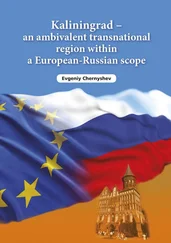At the same time, it must be recognized that the smaller the gap between peacetime and wartime purposes, the greater the likelihood that a successful military effort will be politically successful as well. If objectives are really sound from the standpoint of national interest, they are worth consciously formulating and pursuing in war as in peace. Objectives which cumc into being as a consequence of wartime emotionalism are not apt to reflect a balanced concept of long-term national interest. For this reason, every effort should be made in government planning now, in advance of any outbreak of hostilities, to define our present peacetime objectives and our hypothetical wartime objectives with relation to Russia, and to reduce as far as possible the gap between them.
Our basic objectives with respect to Russia are really only two:
a. To reduce The power and influence of Moscow to limits in which they will no longer constitute a threat to the peace and stability of international society; and
b. To bring about a basic change in the theory' and practice of international relations observed by the government in power in Russia. If these two objectives could be achieved, the problem which this country faces in its relations with Russia would be reduced to what might be considered normal dimensions.
Before discussing the manner in which these objectives could be pursued in peace and in war, respectively, let us first examine them in somewhat greater detail.
1. THE GEOGRAPHIC REDUCTION OF RUSSIAN POWER AND INFLUENCE
There are two spheres in which the power and the influence of Moscow have been projected beyond the borders of the Soviet Union in ways detrimental to the peace and stability of international society.
The first of these spheres is what may be defined as the satellite area: namely, the area in which decisive political influence is exercised by the Kremlin. It should be noted that in this area, which is, as a whole, geographically contiguous to the Soviet Union, the presence, or proximity, of Soviet armed power has been a decisive factor in the establishment and maintenance of Soviet hegemony.
The second of these spheres embraces the relation between, on the one hand, the power center which controls the Soviet Union and, on the other, groups or parties in countries abroad, beyond the limits of the satellite area, which look to Russia for their political inspiration and give to it, consciously or otherwise, their basic loyalty.
In both of these spheres the projection of Russian power beyond its legitimate limits must be broken up if the achievement of the first of the objectives listed above is to be effectively served. The countries in the satellite area must be given the opportunity to free themselves fundamentally from Russia domination and from undue Russian ideological inspiration. And the myth which causes millions of people in countries far from the Soviet borders to look to Moscow as the outstanding source of hope for human betterment must be thoroughly exploded and its workings destroyed.
It should be noted that in both cases the objective can conceivably be achieved for Ihe most part without raising issues in which the prestige of the Soviet state, as such, need necessarily be decisively engaged.
In the second of the two spheres, a complete retraction of undue Russian power should be possible without necessarily engaging the more vital interests of the Russian state; for in this sphere Moscow's power is exerted through carefully concealed channels, the existence of which Moscow itself denies. Therefore, a withering away of the structure of power which was formerly known as the Third International, and which has survived the disuse of that name, need involve no formal humiliation of the government in Moscow and no formal concessions on the part of the Soviet State.
The same is largely true of the first of these two spheres, but not entirely, In the satellite area, to be sure, Moscow likewise denies the formal fact of Soviet domination and attempts to conceal its mechanics. As has now been demonstrated in the Tito incidents, a breakdown of Moscow control is not necessarily regarded as an event affecting the respective states as such. In this instance, it is treated as a party affair by both sides; and particular care is taken everywhere to emphasize that no question of state prestige is involved. The same could presumably happen everywhere else throughout the satellite area without involving the formal dignity of the Soviet State.
We are confronted, however, with a more difficult problem in the actual extensions of the borders of the Soviet Union which have taken place since 1939. These extensions cannot in all cases be said to have been seriously detrimental to international peace and stability; and in certain instances it can probably be considered, from the standpoint of our objectives, that they can be entirely accepted for the sake of the maintenance of peace, In other cases, notably that of the Baltic countries, the question is more difficult. We cannot really profess indifference to the further fate of the Baltic, peoples.
This has been reflected in our recognition policy to date with respect to those countries. And we could hardly consider that international peace and stability will really have ceased to be threatened as long as Europe is faced with the fact that it has been possible for Moscow to crush these three small countries which have been guilty of no real provocation and which have given evidence of their ability to handle their own affairs in a progressive manner, without detriment to the interests of their neighbors. It should therefore logically be considered a part of U.S. objectives to see these countries restored to something at least approaching a decent state of freedom and independence.
It is clear, however, that their complete independence would involve an actual cession of territory by the Soviet Government. It would therefore raise an issue directly involving the dignity and the vital interests of the Soviet State as such. It is idle to imagine that this could be brought about by means short of war. If, therefore, we are to consider that the basic objective outlined above is one which would be valid for peace as well as for war, then we must logically state that under conditions of peace our objective would be merely to induce Moscow to permit the return to the respective Baltic countries of all of their nationals who have been forcibly removed therefrom and the establishment in those countries of autonomous regimes generally consistent with the cultural needs and national aspirations of the peoples in question. In the event of war, we might, if necessary, wish to go further. But the answer to this question would depend on the nature of the Russian regime which would be dominant in that area in the wake of another war; and we need not attempt to decide it in advance.
In saying, consequently, that we should reduce the power and influence of The Kremlin to limits in which they will no longer constitute a threat to the peace and stability of international society, we are entitled to consider that this is an objective which can be logically pursued not only in the event of a war but also in time of peace and by peaceful means, and that in the latter case it need not necessarily raise issues of prestige for the Soviet Government which would automatically make war inevitable.
2. THE CHANGE IN THEORY AND PRACTICE OF INTERNAT10NAI-RELATIONS AS OBSERVED IN MOSCOW
Our difficulty with the present Soviet Government lies basically in the fact that its leaders are animated by concepts of the theory and practice of international relations which are not only radically opposed to our own but are clearly inconsistent with any peaceful and mutually profitable development of relations between that government and other members of the international community, individually and collectively.
Читать дальше










